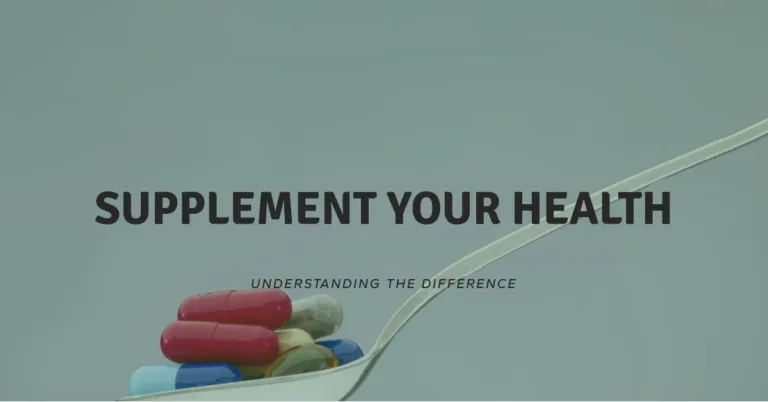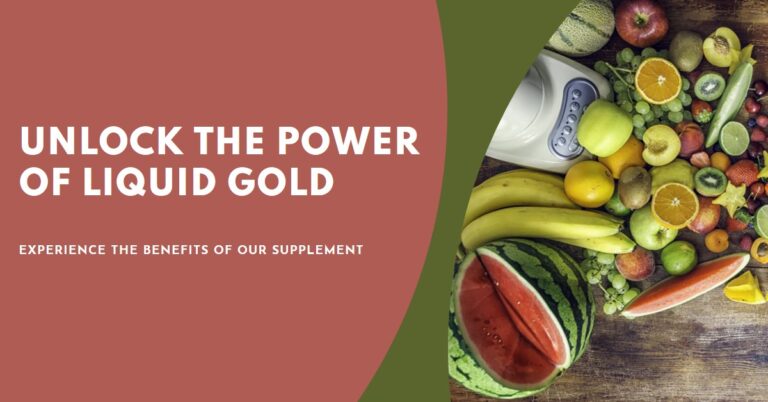HIV/AIDS Home Treatment- Nutrition Guidelines
For individuals with HIV/AIDS, nutrition is an important part of treatment. A nutritious diet can help boost the immune system, fight infections, and improve overall health. In this blog post, we will go over some basic guidelines for a nutritional diet for individuals with HIV/AIDS. We will also touch on which foods to include and avoid, as well as some important supplements to take. Finally, we will discuss the importance on how to maintain a healthy weight. By the end of this post, you should have a better understanding of how nutrition can help people with HIV/AIDS.

Nutrition and HIV: Why Nutrition Is Important For People With AIDS or HIV
HIV/AIDS is a serious disease that can weaken the immune system. This means that people with acquired immune deficiency syndome or HIV are at risk for other infections, which can further complicate their health situation. For people with acquired immune deficiency syndome or HIV, nutrition is important because it helps to keep them healthy and fight infections. There are some specific nutrients that are particularly important for this population, including vitamins A, B, C, and E, and minerals such as zinc and selenium.
Healthy diet and nutrition
People with acquired immune deficiency syndome or HIV should eat a variety of healthy foods to get the nutrients they need. It is also important for them to avoid foods that may be contaminated with bacteria or viruses; for example food from uncooked sources such as salads or fruits and vegetables. Instead they should cook these items at a high temperature to kill any potential pathogens.
Vitamins and minerals
People with HIV/AIDS should also take supplements to ensure that they are getting all the nutrients they need. Some specific supplements that may be helpful for this population include multivitamins, minerals, and vitamins B6 and B12. It is required for people with HIV/AIDS to speak with their doctor about which supplements would be best for them.
The Basics Of A Nutritional Diet For People With HIV/AIDS
A person’s daily diet is important for staying healthy with HIV/AIDS. There are certain nutrients and vitamins that are essential for people with acquired immune deficiency syndome or HIV, and it is important to make sure that they are getting the right amount of these nutrients each day. Eating a variety of foods helps ensure that a person gets all the nutrients they need, as well as variety. It is also important to pay attention to food safety when with acquired immune deficiency syndome or HIV, in order to avoid any potential health risks.
HIV treatment
The following are some of the nutrients that people with acquired immune deficiency syndome or HIV need to ensure their quality of life:
1. Thiamin (vitamin B1) is important for energy production and overall health. It is necessary for the body to make proteins, DNA, and other important cellular materials. A deficiency in thiamin can lead to anemia and other health problems.
2. Riboflavin (vitamin B2) helps the body convert food into energy. A deficiency in riboflavin can lead to poor digestion, fatigue, and skin problems. Riboflavin is also needed for red blood cells production and immune function.
3. Niacin (vitamin B3) supports heart health by helping the body break down fats and glucose properly. A niacin deficiency can cause flushing, increased cholesterol levels, vision problems, and nerve damage leading to numbness or tingling in the arms or legs.
4.Drink at least 8 ounces of water or herbal tea without sugar 4 times a day
5.Drink fortified foods such as breakfast cereals which have vitamin C added
6.Take multivitamins daily to fight off infections and illnesses
7.Eat plenty of fish, fruit and vegetables everyday
8.Regular exercise is part of a healthy lifestyle when you have human immunodeficiency virus
9.Take proper medications, vitamins and minerals
10. Consult a registered dietitian, or health care provider for healthy eating
Foods To Include In Your Diet If You Have HIV/AIDS
There are a number of foods that are especially helpful for people with acquired immune deficiency syndome or HIV. Fruits and vegetables, for example, are high in vitamins and minerals essential for a healthy immune system. Carbohydrates are also an important source of energy for people with acquired immune deficiency syndome of HIV, so make sure to include plenty of these foods in your diet. Infections can be a serious concern for people with acquired immune deficiency syndome or HIV, so it is important to eat safe foods. By following these tips, you can help improve your overall health and well-being .
Foods To Avoid If You Have HIV/AIDS
There are many foods that people living with HIV should avoid to reduce the risk of infection. These include sugary foods and drinks, processed meats and full-fat dairy products, and saturated fats, salt, and alcohol.
People with HIV should also eat plenty of vegetables, fruits,fish,meat, whole grains, legumes (beans, peas, lentils), and low fat. In addition, they should limit their intake of sugar-sweetened beverages (SSBs).
It is necessary for people living with HIV to get enough calcium; this helps to prevent bone loss. Additionally, protein is essential for the body’s immune system; people living with HIV should aim for at least 55 grams per day. This can be achieved by eating animal or plant proteins sources such as eggs or beans in their meals
If you are living with Human Immunodeficiency Virus, it is important to follow a diet that avoids many of the foods that can lead to infection. Some of the foods people living with HIV should avoid include sugary drinks, processed meats and full-fat dairy products, saturated fats and salt, and alcohol. In addition to avoiding these specific foods, people with HIV should also eat plenty of vegetables, fruits, whole grains, legumes (beans, peas, lentils), and healthy fats to maintains or build muscle mass.
People living with HIV need to get enough calcium; this helps to prevent bone loss. Additionally, protein is essential for the body’s immune system; people living with HIV should aim for at least 55 grams per day. This can be achieved by eating animal or plant proteins sources such as eggs or beans.
Vitamin And Mineral Supplements For People With HIV/acquired immune deficiency syndome
Vitamin and mineral supplements can improve the quality of life for people living with acquired immune deficiency syndome or HIV. These supplements can help to reduce the risk of infections, as well as improve overall health. It is important to choose a high quality supplement and to follow the recommended dosage. Additionally, these supplements can also help to reduce symptoms such as fatigue, anxiety, and depression.
There are a number of different types of vitamin and mineral supplements available. Some are designed for people with acquired immune deficiency syndome or HIV only, while others are general health supplements that can be used by anyone. It is important to choose a supplement that meets the specific needs of the individual. For example, some individuals may need higher doses of certain vitamins or supplements than others. It is also important to monitor the overall health of the person taking the supplement in order to ensure it is providing benefits.
There are many different brands and varieties of these supplements available on the market today. It is important to research which brands and varieties have been proven most effective for people with acquired immune deficiency syndome or HIV before making a purchase. Additionally, it is recommended that people take their supplements with food in order to maximize their benefits.
Special Considerations For People With HIV/AIDS When It Comes To Nutrition
Good nutrition is important for everyone, but especially for people living with acquired immune deficiency syndome or HIV. Poor nutrition can lead to a weakened immune system, opportunistic diseases, and other health problems. There are certain supplements and minerals that are especially necessary for people with HIV, and it is essential to make sure these nutrients are included in a person’s diet.
People with HIV should eat a variety of healthy meals and avoid processed foods, sugary drinks, and excessive amounts of fat. Food safety is also an important consideration when it comes to eating healthy. For example, people with HIV should avoid food that has been contaminated by the virus or by bacteria.
There are a few things that people with HIV should keep in mind when it comes to nutrition. First, they need to make sure that they are getting enough protein. Protein is important for building and maintaining the body’s tissues, and people with HIV typically have low levels of this nutrient. Second, they need to ensure that their diets contain enough vitamins and supplements. Vitamins and supplements can help fight off diseases, maintain energy levels, and promote overall health. Third, people with HIV should avoid eating foods high in sugar or fat. These foods can increase the risk of developing chronic diseases such as obesity and diabetes. Finally, food safety is an important consideration for people with HIV. They should always wash their hands before preparing food and avoid eating anything that has been contaminated by the virus or bacteria.
The Importance Of Maintaining A Healthy Weight If You Have HIV/ AIDS
Maintaining a healthy weight is necessary for people with HIV/AIDS. A healthy weight helps to keep the immune system strong and prevents infections. Eating a balanced diet that includes plenty of fruits, vegetables, whole grains, and lean protein can help people with HIV/AIDS maintain their health and well-being. Foods high in fat, sugar, or salt should be avoided because they can lead to weight gain and other health problems. By following these simple tips, you can help to stay healthy and prevent any long-term complications from HIV/AIDS.
Eating a balanced diet that includes plenty of fruits, vegetables, whole grains, and lean protein is also an excellent way to boost your health levels. This will allow you to continue living independently as long as possible while avoiding many common health problems associated with being HIV positive.
Wrapped Up – Important Final Thoughts On Nutrition And People Living With AIDS/HIV
It is important to note that proper nutrition is critical for people living with acquired immune deficiency syndome or HIV. Certain minerals and supplements are especially important for this population, as they may not be able to get these nutrients from food alone. A balanced diet is also essential for people living with acquired immune deficiency syndome or HIV, as it helps to ensure that they are getting the right amount of nutrients and calories.
People living with HIV/AIDS should also be particularly mindful of food safety when it comes to their diets. This is due to the fact that some foods can contain high levels of AIDS-related viruses or toxins. For example, certain fruits and vegetables may be dangerous if consumed raw or uncooked. It is important to cook these foods properly in order to reduce the risk of infection or toxicity.
All In All
A nutritious diet is essential for people living with acquired immune deficiency syndome or HIV. This population needs to make sure they are getting enough of the right nutrients to maintain their health. There are a number of foods that are especially helpful for people with acquired immune deficiency syndome or HIV, as well as some supplements that can be beneficial. It is also important for people with acquired immune deficiency syndome or HIV to pay attention to food safety, maintain a healthy wieght and avoid any potential health risks.








